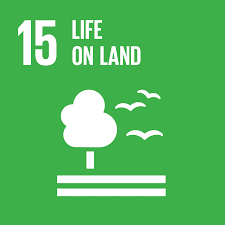Circular Economy
Circular Economy
To cut carbon emissions and reduce pressure on nature, businesses must embrace circular economy solutions.
In a circular economy, products, services, and infrastructure are designed to maximise value and minimise waste. This reduces demand for precious primary resources, lowers carbon emissions, and regenerates our natural environment. There are direct business benefits too. These include better supply chain management, reducing business risk relating to environmental damage and, finding new commercial opportunities.
BITC is working on supporting innovation in several ways:
Joint Statements of Demand: using purchasing power to create a circular economy
Are you looking to reduce your supply-chain-related emissions, your impact on nature and your costs as well as support innovation and investment?
Business in the Community (BITC) is leading an exciting initiative as part of the Interreg North Sea Region ProCirc Project, creating Joint Statements of Demand (JSDs) for office furniture, electric vehicle chargers (ESVs) and professional clothing. A JSD is a shared set of asks that procurers commit to include in future tenders.
A JSD approach recognises that collective purchasing power can drive innovation and investment, accelerating a shift to a sustainable future. A future that BITC sees as a net zero, nature-positive economy where people and nature thrive.
Key facts
- Approximately 45% of global emissions come from industry, agriculture and land-use, which can be reduced by circular solutions.1
- 61% of the public would like to see large businesses using less energy and materials to create and deliver products and services.2
- Only 16% of Responsible Business Tracker® respondents embed the circular economy into their strategy.3
About Business in the Community’s circular economy campaign

FAIRER, GREENER, TOGETHER
we can help you embed circular economy principles into your organisation

We work with businesses along key value chains to solve problems collaboratively and enable circularity. By 2023 our ambition is to equip 60 businesses with the skills and knowledge to adopt circular principles in their procurement, increasing the demand for circular solutions.
Our Circular Economy Taskforce steers our circular economy campaign. A group of chief executive officers (CEOs) and other senior executives delivering a high-impact programme bringing the circular economy to life. Current areas of focus for the Circular Economy Taskforce include:
Collaboration along value chains and across sectors to enable circularity
We are currently developing our ambitious Circular Business Models Revolution Project. We will bring businesses together to identify barriers, solve problems, and explore business opportunities to enable circularity along value chains. These range from designing and selling products with longer lives, to alternative retail models like servitisation and leasing as well as online resale.
We welcome your participation. Partnering and sponsorship opportunities are available. If you are a BITC member contact your Relationship Manager for further information. If you are not a member, learn more about BITC membership.
Taking climate action through a circular economy approach
Businesses can take climate action through a circular economy approach, reducing their carbon emissions. Tackling emissions relating to the products they sell as well as the products and materials they buy from their suppliers, can have a huge impact. Scope 3 emissions, as they are known, tend to represent the most significant proportion, more than 70%, of a company’s carbon footprint4. Taking a circular economy approach can help reduce this figure.
Resources to help you take action
- Report: Going Circular for Net Zero: in your hands. This report outlines key enablers and levers crucial to achieving a circular economy for net zero. It begins by examining the drivers for change, collating insight from over 35 organisations across various sectors.
- Factsheet: Accelerating to Net-Zero with the Circular Economy. Download this factsheet to find out more on defining the circular economy, the lifecycle phases of a product, redesigning business models, practical steps to adopt circular approaches and read a glossary.
Taking a circular approach to procurement
Adopting a circular approach to procurement allows businesses to become more sustainable while delivering business benefits. Circular procurement focuses on closing energy and material loops within supply chains, creating demand for example for remanufactured goods or reuse of materials. It creates long-term value by focusing not just on single transactions, but on the products and services suppliers offer their clients.
During 2022 Business in the Community began developing joint statements of demand as part of a collaborative procurement project across northern Europe. Procurers are co-developing these, setting out their future circular asks for three specific product categories. This will signal a shared demand to the market, creating the basis for suppliers to invest and innovate to develop circular products to meet that demand.
If you would like to participate in a circular procurement pilot, or be part of a joint statement of demands, contact your Relationship Manager if you are a member of BITC. If you are not a BITC member, learn more about membership.
Resources to help you take action
- Factsheet: Circular Procurement. This factsheet contains six simple steps for any business beginning its circular procurement journey.
- Factsheet: How Can Corporate Procurement Tackle the Climate Crisis? This factsheet sets out how the role of the modern Chief Procurement Officer (CPO) and procurement leaders can support their businesses to act on climate change.
- Report: Improving the Sustainability of Professional Clothing sets out a framework of principles which procurers can adopt to select more circular options for workwear.
- Toolkit: The Business Case for Circular Procurement. This toolkit takes a closer look at some of the product categories organisations should address, gives practical steps on how to implement the principles in your business and makes the business case for doing so. It was written by the global energy and environmental consultancy Ricardo Energy & Environment, members of Business in the Community’s Circular Economy Taskforce.
Creating circular buildings and offices
BITC’s circular office initiative brings businesses together to learn, share, and try new ideas to bring the circular economy to life in their workplaces. It is about changing how we design, use and operate to eliminate waste and create more efficient, resilient spaces. These spaces will contribute to the long term sustainability of businesses and the wider economy and the positive wellbeing of occupants.
Resources to help you take action
- Factsheet: The Circular Office: A sustainable approach to the places we work (BITC member only resource). This factsheet call on organisations to sign up for the Business in the Community (BITC) circular office initiative.
- Report: The Circular Office Guide. The Circular Office Guide shows organisations how to retain the value of materials, by keeping them in circulation and eliminating waste in their workplaces. It contains useful information for everyone involved with offices including landlords, tenants, property managers, facilities managers, procurement teams and employees
- Toolkit: How To Deliver A Carbon Friendly Workplace Transition. A guide for businesses on delivering a carbon friendly workplace transition, post-COVID-19, that limits waste, protects the environment and benefits employee health and wellbeing.
Measuring and reporting circularity
Environmental, Social, and Governance (ESG) reporting is rapidly becoming mainstream practice for UK businesses. While several circular economy reporting frameworks exist, there is not yet a clear and common approach. This has proved to be a barrier to reporting being fully adopted. BITC has developed a useful set of metrics for measuring circular economy in organisations, and what streamlined but meaningful reporting should look like. Our insights can be found in our How Circular?: Measuring and Reporting Circular Economy in Business report.
Business leadership on transformative change towards a circular economy
Our members show leadership through showcasing business best practice and thought leadership, as well as convening peer-to-peer learning sessions.
Business in the Community enables members to be at the forefront of creating a circular economy in the UK. We support businesses to share examples of how they are taking action and bringing the circular economy to life in their organisations.
Resources to help you take action
- A Guide to Recycling, Waste Management and Resource Productivity. This guide sets out the opportunities that rethinking resource and waste transformation can bring, explaining how to eliminate avoidable waste and turn ‘waste’ into ‘wealth’. For any business that recognises its responsibility to change, this is the starting point.
Case studies
We encourage businesses to share examples of how they are taking action and bringing the circular economy to life in their organisations.
- Advancing Circular Construction: case studies from the building and infrastructure sectors
- Circular Economy Case Studies from Anglian Water, Amey, ABP, Crown Workspace, Currys, Gilbert-Ash, Jaguar Land Rover, JLL, Packorang, PwC, Sodexo, Waitrose (BITC member only resources).
- Diageo and Encirc collaborate on sustainable Scotch bottle.
- Keenan Recycling: tackling food waste for a greener future.

Fairer, greener, together
we can help you embed circular economy principles into your organisation

Related content

Seven Steps for
Climate Action
This resource sets out how businesses can deliver a just and fair transition to a resilient,
net-zero future.

Circular Economy
in Business
Indicators for the effective measuring and reporting of circular economy in business.

Accelerating to Net Zero
with the Circular Economy
Think more holistically about emissions, including how these might spread throughout
supply chains.
GLOBAL GOALS
TOGETHER WE CAN CHANGE THE WORLD







References
- Ellen MacArthur Foundation (2021) Completing the Picture: How the Circular Economy Tackles Climate Change.
- Business in the Community (2022) Taken from research conducted for The Right Climate For Business: leading a just transition report but not included in final version.
- Business in the Community (2020)
- Deloitte (no date) Scope 1, 2 and 3 emissions: What you need to know.
